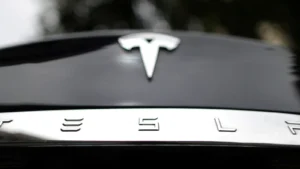In a tragic turn of events, Tesla has reached a settlement regarding a lawsuit stemming from a 2018 car crash that claimed the life of a respected Apple engineer. The incident occurred when his Tesla Model X, purportedly operating on Autopilot, veered off a highway near San Francisco. The settlement agreement was reached just before the trial was set to commence, spotlighting the ongoing scrutiny surrounding Tesla’s driver-assistance technology and the potential ramifications for the company.
The specifics of the settlement remain undisclosed, underscoring the sensitivity surrounding the case. This development comes at a crucial juncture for Tesla, with CEO Elon Musk vigorously championing advancements in self-driving technology as pivotal for the company’s financial future.
The incident
The tragic accident resulted in the loss of 38-year-old Walter Huang, prompting his family to allege that Autopilot was responsible for steering his vehicle into a highway barrier. Revelations from deposition transcripts indicated that plaintiffs’ lawyers questioned whether Tesla was aware that drivers might not maintain vigilance while using its driver-assistance system. In response, Tesla contended that Huang had misused the Autopilot system by engaging in distracting activities, such as playing a video game, just moments before the crash.

The incident involving Huang is just one of many accidents across the United States where Autopilot has been implicated. The National Highway Traffic Safety Administration has investigated numerous crashes linked to Tesla’s automated-driving systems, raising concerns about their safety and efficacy.
Legal expert Bryant Walker Smith noted the significance of Tesla’s decision to settle, suggesting that it may signal a willingness to resolve similar cases outside of court. This development follows two previous trials in California where Tesla successfully argued that the drivers involved had failed to adhere to instructions to remain attentive while using Autopilot.
Tesla to demonstrate a fully autonomous vehicle
Despite years of anticipation and bold predictions from Musk, Tesla has yet to demonstrate the ability to produce a fully autonomous vehicle. Musk’s recent announcement of plans to unveil a self-driving robotaxi underscores the company’s ongoing pursuit of advanced autonomous capabilities, despite setbacks and skepticism from critics.

Tesla’s reputation has come under scrutiny amidst declining sales and controversies surrounding Musk’s public statements. Analysts warn that negative publicity stemming from legal battles could further erode consumer trust and confidence in Tesla’s technology.
Autopilot, which is marketed as a driver-assistance system, is designed to assist with tasks such as speed control and lane-keeping. However, Tesla emphasizes that it does not render the vehicle fully autonomous and requires constant supervision from the driver.
Musk’s past assertion that Tesla would not settle unjust cases now appears ironic in light of the recent settlement. The company’s willingness to resolve legal disputes discreetly suggests a pragmatic approach to managing its reputation and legal liabilities.
The settlement of the lawsuit surrounding the 2018 car crash involving Tesla’s Autopilot technology underscores the complex legal and ethical challenges associated with autonomous driving systems. As Tesla continues to navigate these issues, the outcome of this case serves as a reminder of the importance of balancing innovation with accountability in the pursuit of safer transportation solutions
The automakers is grappling with legal actions and official inquiries related to accidents involving its Autopilot and Full Self-Driving driver-assist features. The company has attributed these incidents to drivers’ lack of attention.
Autopilot is capable of steering, accelerating, and braking independently on highways, but it does not offer complete autonomy, particularly in urban settings. Tesla’s documentation emphasizes that the system does not render the vehicle autonomous and stresses the necessity of a “fully attentive driver” who can assume control whenever necessary
He also said last month that Tesla will offer US customers a a month’s free trial of its driver-assist technology, Full Self driving.











